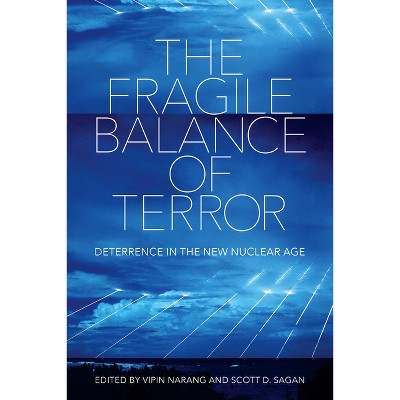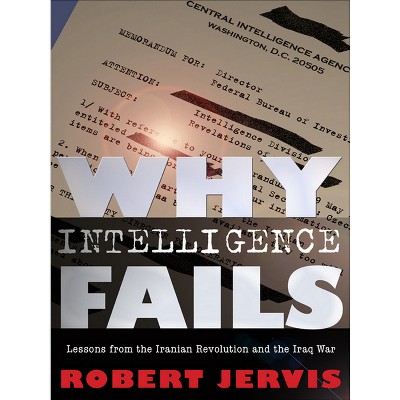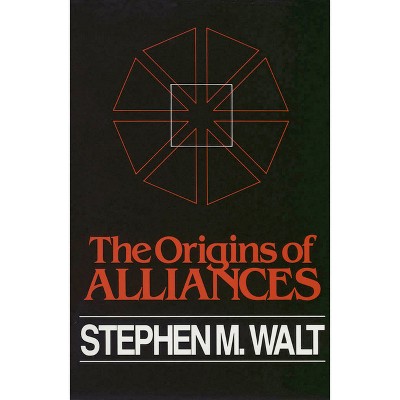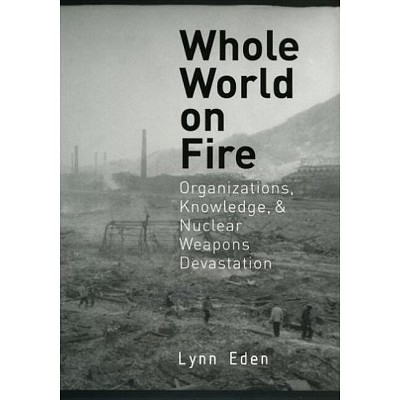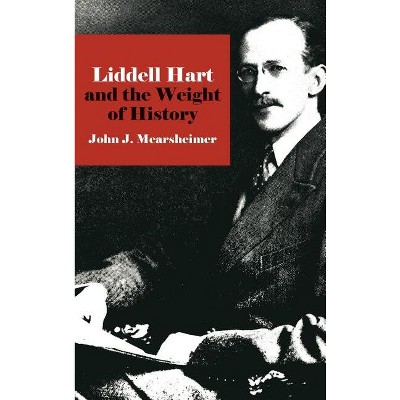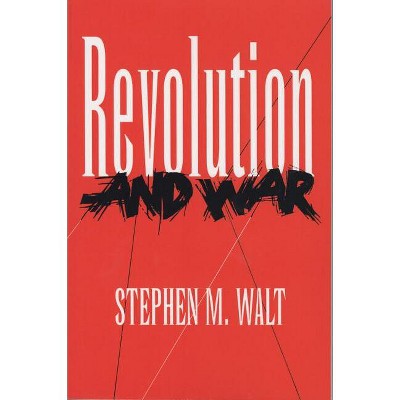Sponsored

Elusive Balance - (Cornell Studies in Security Affairs) by William Curti Wohlforth (Paperback)
In Stock
Sponsored
About this item
Highlights
- Concentrating on the period between 1945 and 1989, The Elusive Balance reevaluates Soviet and U.S. perceptions of the balance of power.
- About the Author: William Curti Wohlforth is Daniel Webster Professor and Professor in the Government Department at Dartmouth College.
- 336 Pages
- Political Science, Political Process
- Series Name: Cornell Studies in Security Affairs
Description
Book Synopsis
Concentrating on the period between 1945 and 1989, The Elusive Balance reevaluates Soviet and U.S. perceptions of the balance of power. William Curti Wohlforth uses a comparative and long-term approach to chart the diplomatic history of relations between the two countries. He offers new interpretations of the onset, course, and end of the Cold War, and the motivations behind Soviet behavior.
Review Quotes
The Elusive Balance offers some intriguing insights into changes in Moscow's external behavior, including the reforms of the Gorbachev period. In addition, Wohlforth successfully demonstrates the elusive nature of power in international politics.
-- "Virginia Quarterly Review"A major work of interpretive art that challenges conventional thinking and scholarship on a broad front. Wohlforth's astute political and historical analysis should make it a classic.
-- "Russian History"An outstanding book. Its detailed accounting of each side's perceptions casts doubts on traditionalist and revisionist views that blame one side or the other for the cold war. Its critique of realism questions whether Cold War antagonisms were as overdetermined as many have made them out to be. It deserves a wide audience among political scientists, historians, and anyone else with an interest in US-Soviet relations and the Cold War.
-- "Slavic Review"Pathbreaking. Wohlforth presents extremely valuable empirical nuggets, especially those derived from the Soviet diplomatic archives, on the evolution of Soviet strategic thought.
-- "American Historical Review"The book provides a very useful and lucid synthesis of the many arcane yet consequential debates among Soviet ideologists and theorists over international relations. It should become a standard reference source for historians and political scientists, because it brings together the insights of many different Kremlinologists, shows where they disagree, and presents the most recent consensus of opinion. In flowing prose, Wohlforth presents many creative and insightful interpretations of Soviet rhetoric and the disjuncture between self-presentation and reality.
-- "The American Political Science Review"The main contribution of this book is not new theory--rather it is empirically testing and refining widely used concepts. It is important to stop and ask about the connection between theory and history, something Wohlforth has done in a clear and easily accessible way.
-- "Journal of Politics"There are literally hundreds of books on the history of the Cold War. This is one of the best. Wohlforth shows how and why researchers require both a good theory and a firm grounding in the documents if they are to understand the Cold War.
-- "International Affairs"Wohlforth has rewarding things to say about the way Cold War leaders appraised power and how their views evolved. His well-focused quest provides compact, powerful insights.
-- "Foreign Affairs"Wohlforth's major contribution to the study of international politics is his reminder that while power matters, perceptions of power matter a helluva lot more. The author has issued an important challenge to prevailing winds in international relations theory while shedding new light on the grand sweep of Soviet foreign policy.
-- "The International History Review"About the Author
William Curti Wohlforth is Daniel Webster Professor and Professor in the Government Department at Dartmouth College.






